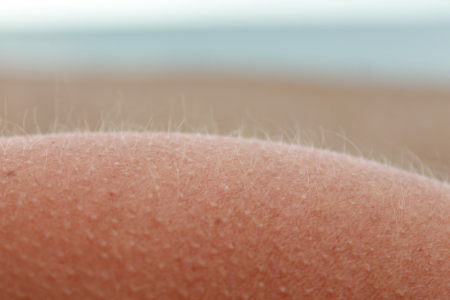our body presentstemperaturenormal in the range of 36.5°C. Raising or lowering this temperature can have harmful effects on the body, which has mechanisms that try to avoid this problem. In the cold, for example, our body reacts in a way that prevent hypothermia, That is a temperature drop to below 35ºC.
→ Body reactions during the cold
The organism presents different ways to keep your body warm. Among the reactions he can present during a cold situation, we can mention:
tremors – Consist of involuntary muscle contraction, being performed, therefore, regardless of our will. This involuntary contraction ensures heat production.
-
Piloerection (hair erection) –Animals have the ability to bristle their by the on cold days so as to avoid heat loss. By bristling the hairs, a layer of warm air is created close to the skin, ensuring the maintenance of body temperature. In humans, this mechanism is also observed (shivering), but the efficiency is limited, as our body has few hairs.

Getting goosebumps is related to maintaining body heat Changes in blood circulation – In cold weather, the nerve endings present in the skin are able to capture the drop in temperature and ensure changes in capillaries. Vasoconstriction, that is, a reduction in the size of the blood vessel, is observed on the skin. By decreasing the caliber, there is less heat loss from the body. At elevated temperatures, we see the opposite: the vessels are dilated to ensure greater heat loss.
Thermogenesis without tremors – In the cold, the mitochondria increase their metabolic activity to produce heat instead ofATP, a process called tremorless thermogenesis.
brown fat lipolysis - A brown fat it is a large and important source of heat. In humans, it is most commonly found in children. In adults, it is found in smaller amounts, being responsible for a lower heat production when compared to children.
See too: 15 trivia about the cold
→ Why do we urinate more in the cold?
In the heat or when we practice intense physical activities, we eliminate sweat, ensuring our heat loss. On cold days, it doesn't happen with such intensity. As water is not being eliminated through sweat, we eliminate more of this substance through the urine.
By Ma. Vanessa Sardinha dos Santos
Source: Brazil School - https://brasilescola.uol.com.br/curiosidades/as-reacoes-corporais-durante-frio.htm
